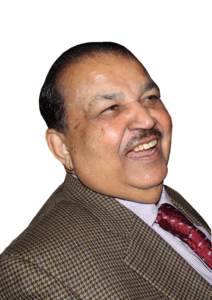by Sukhram Ramkissoon
I have regularly advocated through this column for persons who obtained permanent residence under Convention Refugee Grounds, and have advised that if they should return to their country of citizenship as permanent residents, they will lose their permanent rights to remain in Canada.

A St. Vincent and the Grenadines (SVG) national, whom I will refer to as James (not his real name), filed a Federal Court matter; the decision was recently published on the court website.
In James’ successful claim for refugee protection in Canada, he claimed to have a well-founded fear of persecution and risk of life due to his sexual orientation. As a result of the positive decision, he applied for and obtained permanent residency in Canada in November 2016.
James obtained a newly issued passport from SVG authorities in Toronto in October 2020. He went in person to the SVG Consulate in Toronto, completed a passport application, and returned his expired passport. Using the newly obtained passport, James traveled to SVG, in December 2020 where he remained for several weeks. Upon his return to Canada on January 7, 2021, he was questioned by a Canada Border Services Agency [CBSA] officer.
James attempted to mislead the CBSA officer, initially stating that he had traveled only to Barbados. When shown an SVG stamp in his passport, he admitted to also visiting his home country and stated that the purpose of his trip was for a vacation. He added that he stayed at his mother’s home, who was suffering from a non-serious illness and receiving care from other family members. James stated that he did not experience any problems during his trip.
In February 2021, the Minister applied to the Refugee Protection Division (RPD) under immigration laws for the cessation of James’ status as a Convention refugee. The RPD allowed the Minister’s application and rejected James’ claim for refugee protection. The RPD found that he had voluntarily, intentionally, and re-availed himself to the diplomatic protection of SVG according to Canadian immigration laws.
On voluntariness, the RPD found that James voluntarily applied for and received a new SVG passport from the country’s diplomatic representatives in Toronto. It found that he was not coerced or forced by any person or government entity to return to SVG and that the purpose of his trip was for a vacation, as he stated to the CBSA officer.
Regarding James’ intention to return to his home country, the RPD found that he failed to rebut the presumption that he intended to re-avail himself. It rejected his testimony that the purpose of his trip was to care for his mother, as this contradicted the CBSA officer’s note of what James said during his examination at the airport.
The RPD also found that James had some degree of awareness of the immigration consequences of his trip. This is contrary to his testimony that he thought he could return to SVG as he was a permanent resident for over three years. The RPD noted that the evidence before it also established that James presented himself in public and in an institutional setting, which it found is not consistent with the actions of a person who has a subjective fear.
On the issue of re-availment, the RPD found that James entered SVG through the normal airport entry process and did not experience any difficulties with authorities or any state or non-state actors during his visit. It noted that he had several encounters with officials from SVG and that he did not always take precautions during his visit. As such, the RPD found that he “conducted himself as a person without a subjective fear.”
The Federal Court dismissed James’ judicial review application, and the next step would be for CBSA to initiate removal proceedings.
For all those persons who were granted refugee protection and are currently permanent residents of Canada, please understand the consequences that could be faced by you, when seeking government assistance from your country of nationality, and/or by travelling to your country of nationality, even on an emergency basis. If you are someone in a similar circumstance, seek legal advice immediately.
SUKHRAM RAMKISSOON is a member of CICC and specialises in immigration matters at No. 3089 Bathurst Street, Suite 219A, Toronto, Phone 416 789 5756.


